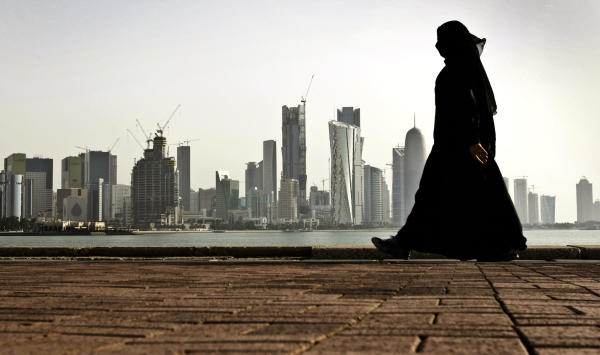There have been a number of experiences concerning women’s rights in Arab and Muslim countries. Some of these countries, such as Turkey and Tunisia, have undergone a series of structural reforms that have resulted in increased equality. Meanwhile, others, such as Morocco, have adopted gradual reforms, which are also ledding to women accessing most of their rights.
The reforms that Atatürk started some 80 years ago, which were in favor of gender equality, led to women attaining many rights in various areas. Similarly, in Tunisia some six decades ago, in 1956, the late president Habib Bourguiba published the Mudawana (code), which gave Tunisian women a strong push towards equality with men. Of course, the presence of women’s organizations acted as a shield that defended gains made by women, and prevented any setbacks that could have affected reform. This particularly concerns the prompt reforms that were put in place by undemocratic reformist leaders, who were known as “just tyrants.”
As for gradual reform, Morocco is the best example. There, women’s organizations, with the king’s cooperation and encouragement by the EU, have contributed to greater success. A group of female lawyers, reformists and writers—an educated and expert group—gathered together to clarify their desired reforms to politicians. Parliament subsequently adopted the reforms within the bounds of Islamic jurisprudence, at which point they were voted on and passed by Moroccan parliament. The presence of a young king who had just been enthroned, and who had intended to bring about reforms to benefit women, and who was encouraged by neighboring European states promising better economic relations, contributed to the publishing of the Women’s Mudawana, similar to the Tunisian one that was published in the 1950s.
There is no doubt in my mind that the reforms implemented in Morocco, which culminated with the Mudawana ten years ago, are the best. They were organized by educated women who specialized in law and Islamic jurisprudence, in cooperation with reformist religious leaders and the media, with great support from different components of society. It intended to provide women with a high level of gender equality, which they accomplished.
We now return to our main topic, the Gulf States, and the possibility of reforming the laws that govern women.
All of these countries scored poorly in a study conducted by Freedom House, even if some scored higher than others. I will not call them achievements, as very little has been accomplished. In this region, discussion revolves around gradual reform by official and civil women’s rights organizations, but achievements are few.
In the Freedom House report, Kuwait earned the largest number of points, followed by Bahrain, and then the remaining countries. In Kuwait, women lawyers and progressive women’s associations, supported by liberal groups, all seek gradual reform. In Bahrain, there are groups which seek to enact laws that ensure justice for women. These include the Supreme Council for Women, the Women’s Union, and other women’s societies, as well as some liberal political organizations that are not specifically aimed at women’s causes, such as the National Democratic Action Society.
Perhaps the actions undertaken by a group of Saudi women show that gradual reform does achieve results. They agreed to deal with some of the issues and injustices that women face in order to arrive at a solution. They began by demanding the “annulment of the need for a power of attorney for women in trade and business dealings in general.” They explained how women do not need such measures, before holding a series of lectures and inviting specialists to give speeches on the issue. It is worth mentioning that they were successful in their efforts, and this rule was annulled.
The second issue that they touched on was “the participation of women at work,” and this is one that relates to the issue of guardianship. This can be subdivided into a number of clauses, the most important of which is that “women cannot receive education or medical treatment without the consent of a guardian.” For a whole year, this vital issue was discussed. Lectures were given, and it was clarified that the government system did not differentiate between the two sexes, which is established under Islamic Shari’a law.
As for the third issue, there was a desire to create departments in the courts to specialize in inheritance, women’s issues, and distinguish between social traditions and Shari’a law. What is currently in practice is a limitation on heirs, not on inheritance, leaving the authorized individual to act as he pleases, without punishment or accountability if he fails to stay within the law. They requested that departments be set up to limit heirs and inheritance, and to determine the time frame for the disbursement of an estate, as this can take years.
These achievements took years to be put into effect, and we should not forget the actions of the Custodian of the Two Holy Mosques, King Abdullah bin Abdulaziz, who began his reign by backing a number of women’s issues. The presence of a base, represented by a group of educated women, and a leader, represented by King Abdullah, helped support these achievements, and we can only hope to see more such achievements in the future.
This quick review of the reality of the situation in the Gulf Cooperation Council states reflects the impossibility of immediate structural reform. As such, efforts should be doubled in terms of using the media and education to promote a culture of reform and equality. But until society matures and becomes convinced of the necessity of reform, we will not see any progress, and women will continue to be prevented from achieving their rights for a long time to come.
You can read the counterpoint to this piece here.
